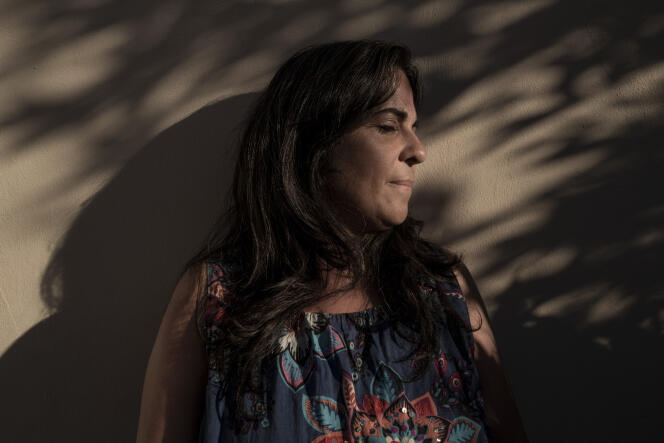


Analia Kalinec used to be a model little girl. Now she's a "disobedient" (desobediente, in Spanish); in other words, a woman prepared to challenge the family order. It took her years to accept that her father, the loving man who tickled her while calling her "my little rabbit" in the evening, was the same man who kidnapped and tortured people during the day. "The father figure is so formative that my mental framework exploded," said the 44-year-old schoolteacher and psychologist. "The thought that I might have something abnormal in my blood and that I could pass it on to my children terrified me."
Her father is Eduardo Emilio Kalinec, a former police officer who was sentenced in 2010 to life imprisonment for his actions during the military dictatorship (1976-1983) in the clandestine detention centers known as Atlético-Banco-Olimpo. Analia only learned the truth about her father after he was arrested in 2005. Before that, the dark years, marked by the disappearance of some 30,000 people according to human rights organizations, were for her no more than a hazy period in Argentina's history.
After the first torturers were tried in 1985, the country decided to turn the page on that era, granting amnesty to the few who had been convicted and concealing what had happened under a cloak of impunity. Peronist Nestor Kirchner's arrival in office in 2003 changed everything: He asked for forgiveness on behalf of the government, made "memory, truth and justice" a national policy and authorized trials for crimes against humanity to be reopened. To date, 1,204 people have been tried and convicted.
In 2005, Kalinec experienced the first months of her father's detention – during his trial – in a kind of fog of ignorance. "I'd go and visit him in prison, and we'd talk about anything and everything, but not about the dictatorship or what he'd done." His mother and two younger sisters, who work as police officers, supported him. "It's all a mistake. Dad will soon be released," said her grandmother. Analia started looking for answers elsewhere, in books, documentaries, and conferences. The country began to gradually regain its memory.
When she read her father's indictment in 2008, the young woman realized the full extent of the horror. "It was an inflection point in my life. In it, I read horrible testimonies," she recounted in the study of her home in the working-class district of Flores, Buenos Aires. "He was accused of having participated in torture under the pseudonym of 'Doctor K.' He was involved in 181 kidnappings." The victims, real or supposed opponents of the regime, were "arrested" outside all legal frameworks and tortured in clandestine detention facilities before disappearing, most of them forever.
You have 75% of this article left to read. The rest is for subscribers only.
